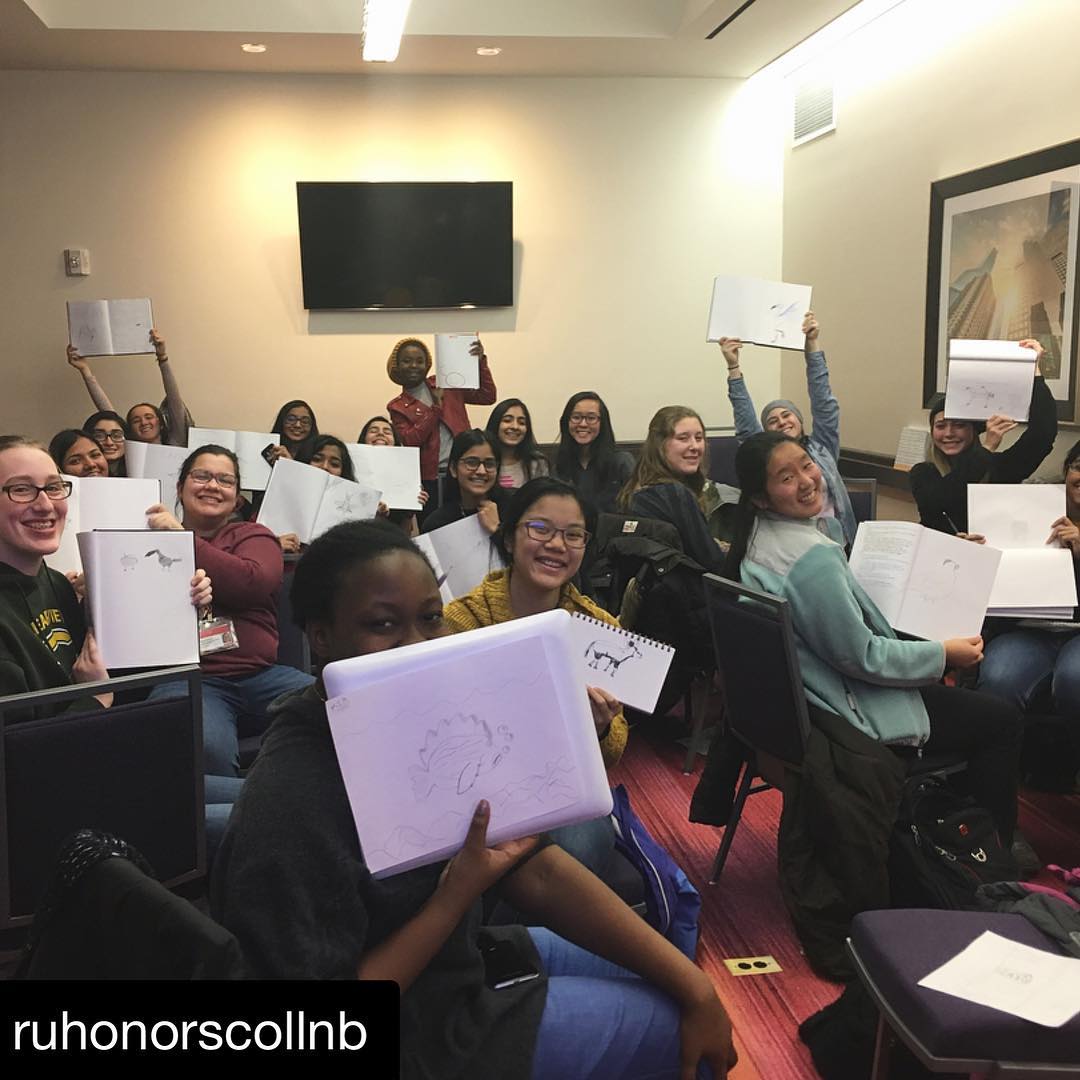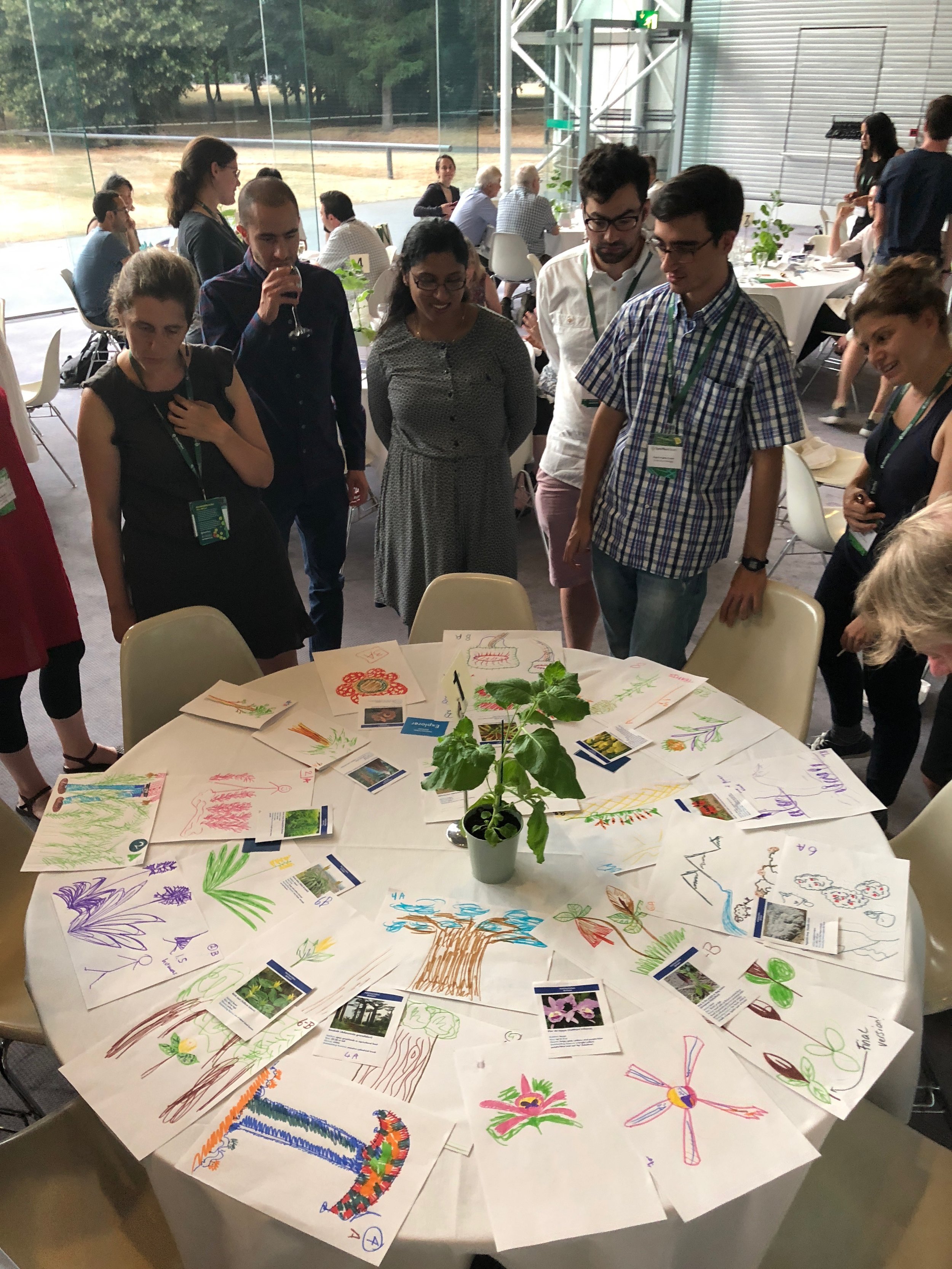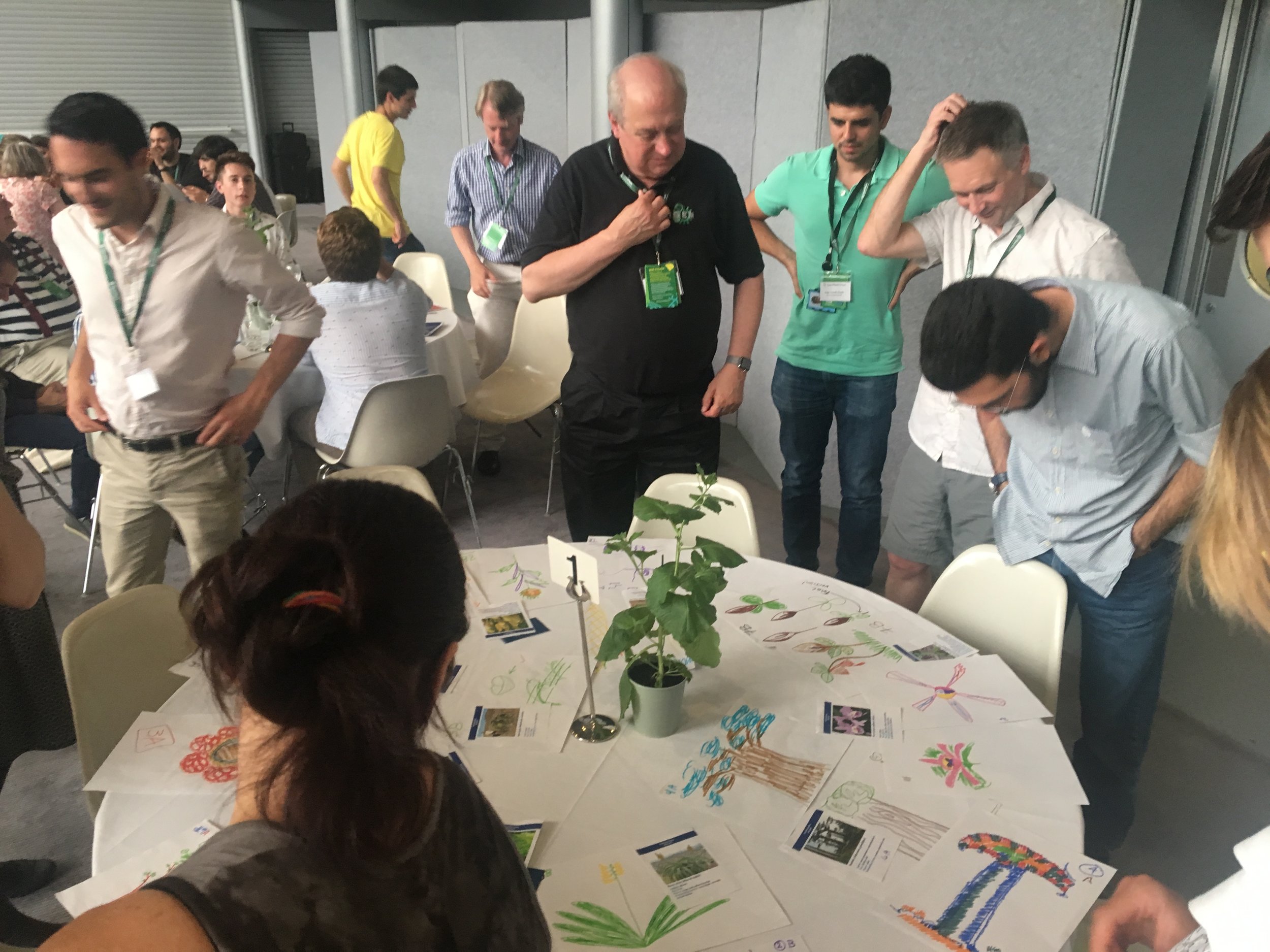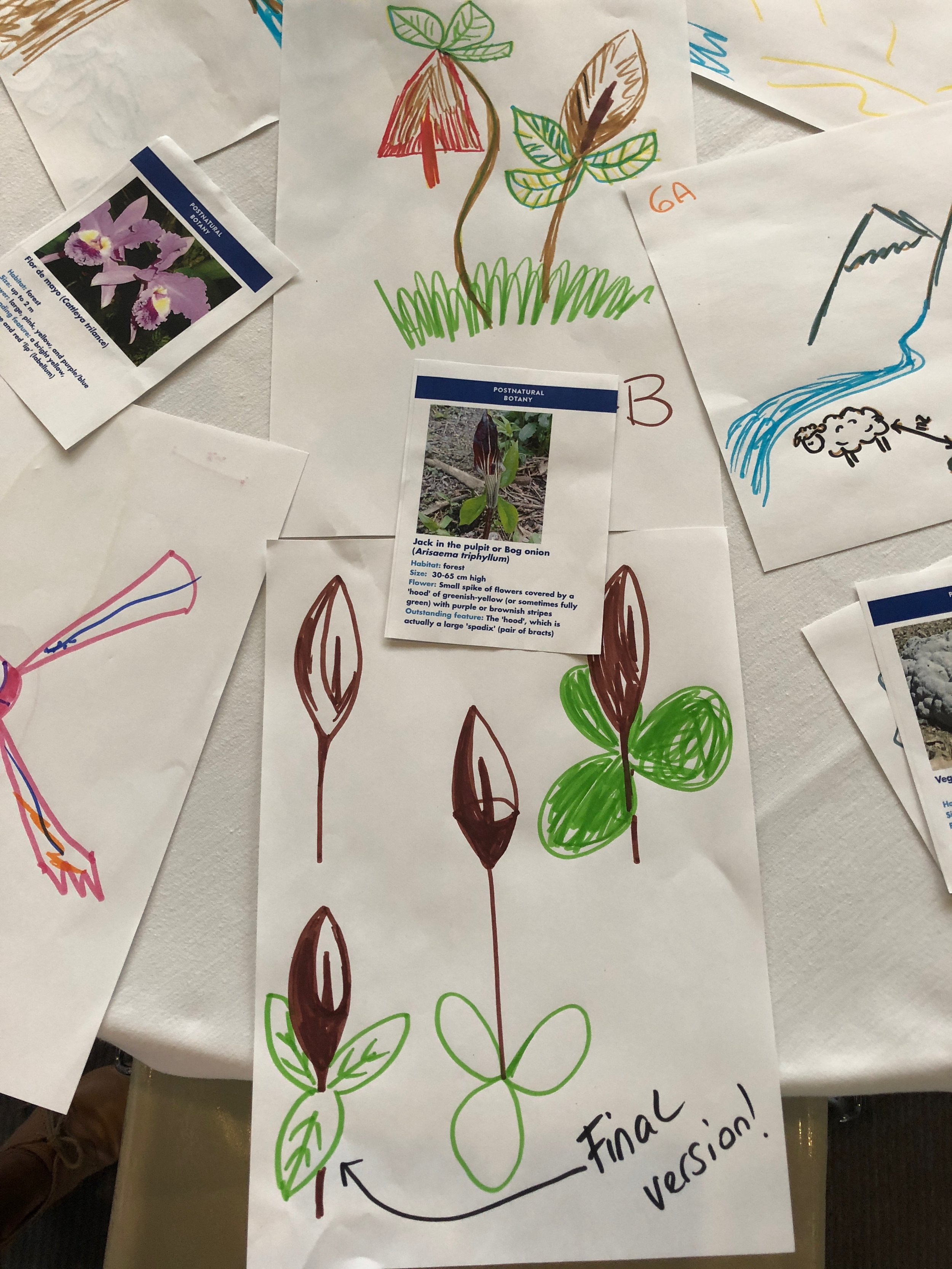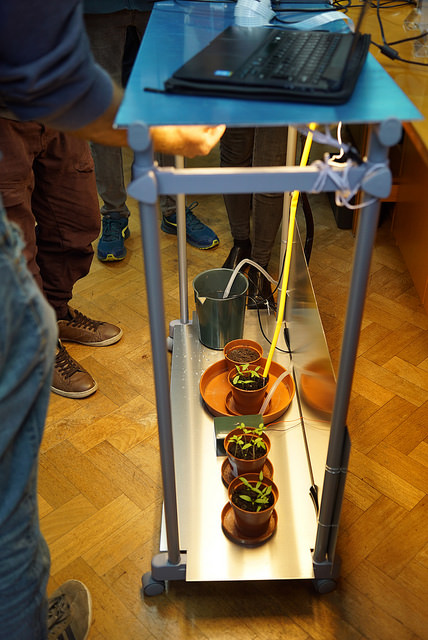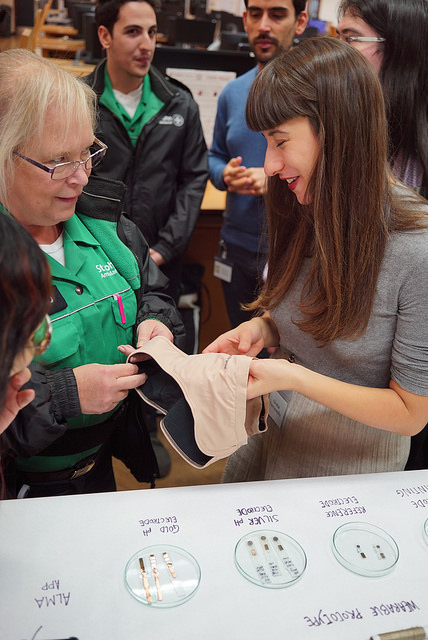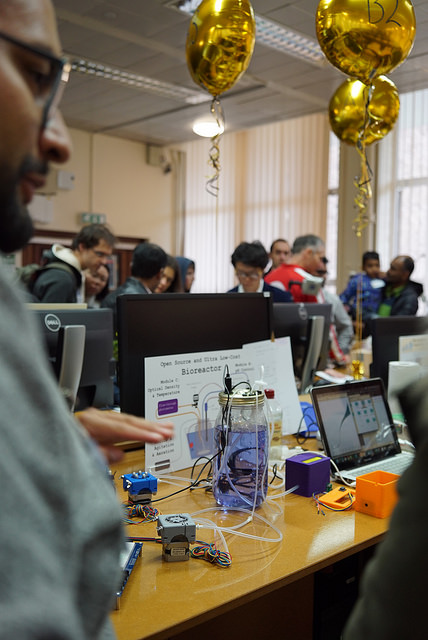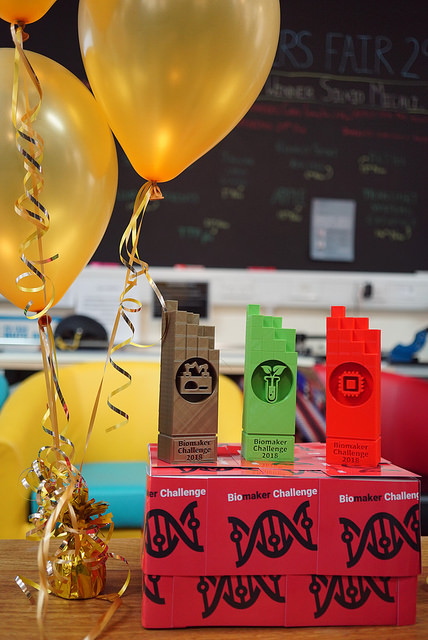“Postnatural Botany” rules booklet, plant discovery cards, and role-playing cars for “Explorer”, “Regulator” and “Artist”. Photo: Karen Ingram
Guest post by Karen Ingram, Creative Director
Postnatural Bestiary/Botany
This past July, participants of the 2018 OpenPlant Forum went on an expedition where they discovered several new species of plants. Ok- they didn’t REALLY discover the plants, but they played a game that enacted the discovery of 18 new plants, from alpine to outback, at the conference dinner held at the Sainsbury Centre for Visual Arts (SVCA). The game, “Postnatural Botany” was inspired by Medieval Bestiaries, and the notion that explorers would describe the wildlife from their travels to people who had never seen such wildlife, as a means to share with the community.
Image courtesy of Rutgers University Honors College Instagram and Julia Buntaine.
“Postnatural Botany” has its origin as a workshop I created for 23 students in the Rutgers University Honors College and Douglass Residential College for women. The workshop took place in early 2018 and was part of a course, “Science/Art/Technology in New/York/City" taught by Julia Buntaine of the SciArt Center.
Originally dubbed “Postnatural Bestiary” and depicting a wide array of animals, I worked with Dr. Nicola Patron from the Earlham Institute to tailor the game to be plant focused, specifically for the Open Plant Forum.
The 2018 Open Plant Forum was hosted in Norwich, at the John Innes Centre. Norwich–which enjoyed great prosperity in the Middle ages–was the perfect backdrop for a game based on medieval bestiaries.
Playing the Game
Each person was assigned a role as an “explorer”, “artist”, or “regulator” and worked in teams to produce artworks of each plant according to the rules of play. Patron selected a wide variety of plant life; Venus Flytrap, Rainbow Eucalyptus, Welwitschia, Jack-in-the-Pulpit, and Java Moss were all “discovered”, described with limited terminology and depicted with magic markers and imaginative minds.
Karen Ingram introducing the game to attendees of the Open Plant Forum. Photo: Nicola Patron
The “explorer” in each group was given an envelope that contained a card with the plant they had “discovered.” The card displayed a limited amount of information, including an image of the plant, the name, habitat, size, characteristics of its flower (if there was one), and information about a specific “outstanding feature” for each plant.
The “explorer” had to describe the plant they had discovered to an”artist” for visual interpretation. A “regulator” was also part of the game play, in order to ensure all parties followed the rules, of which there were many! Neither the artist nor the regulator were allowed to guess what the plant might be. The artist was not allowed to talk at all, primarily to keep them from guessing what the plant was.
Explorer Jenny Molloy gesticulates as she describes a Baobab tree to her team’s artists, Joanne Kamens and Dave Rejeski. Photo: Karen Ingram
Clockwise from bottom left: Francoise Kepes, Claudia Vickers, Steve Evans, Richard Sever, Anne Osbourn, Jim Haseloff, Peter Murray-Rust, Christina Smolke. Photo: Karen Ingram
Fun with Rules
I created a fictitious human-centric “public” that has no access to robust image catalogues and information we have via the internet, and no knowledge of the sciences. Because of these limitations, “explorers” had to use simplified terminology; leaning on familiar household objects and tools used by humans (purses, for example) and referencing the human body as a measurement unit. Professor George Lomonosoff from the John Innes Center remarked that it was a joy to describe a Rainbow Eucalyptus tree to his team’s “artists” as being “...as tall as twenty men!”
Jim Haseloff puts the final touches on his drawing. Photo: Nicola Patron
Simple explanations, gestures, analogies referencing common household objects, an abbreviated list of plant traits (stems, leaves, flowers, roots), as well as a few select domesticated plants were used in favor of scientific terminology.
The key objectives of the game were not so much to depict the plant correctly, but to work as a team: to communicate carefully on the part of the explorers, and to listen and interpret on the part of artists and regulators, and for everyone to have fun with plants.
An amazingly accurate rendering of a Sturt’s Desert Pea by Jan Lyczakowski, who exclaimed “I’ve never seen this plant before, but apparently I did a pretty well!” Photo: Nicola Patron
Open Plant Forum attendees marvel over a gallery of colorful creations. Photo: Nicola Patron
Colette Matthewman–whose winning drawings of a Jack-in-the-pulpit underwent several iterations before she was satisfied–shared her thoughts: “The OpenPlant Forum attracts a mutidisciplinary crowd, and this was a great game for breaking down barriers of language as we were all restricted to using very every-day words together with gestures to describe and understand the look of the plant – and the plants chosen looked really fantastical! As ‘an artist’ it was fascinating to see how I started to relate the explorer’s description to plants that I knew. This helped me to draw a reasonable likeness, but also limited my ability to take on board specific instructions from the explorer as they didn’t match the image in my head.”
A Note about the Postnatural
The term “Postnatural” is defined as any organism altered by humans via selective breeding or genetic engineering. In the fable of this game, the plants and organisms are newly “discovered” by humans. Through the ages, plant collectors took their findings to new places for breeding and growth in new environments, altering the genetics and epigenetics of the plants forever. This calls to question, at what point of human intervention do organisms become “postnatural”? Once an organism is known and it is integrated into our lexicon; in a Bestiary as it was in the Middle Ages, domesticated to produce products for humans, or its genome sequenced, it is part of our human narrative. Fewer and fewer botanists get to experience the thrill of discovering a new plant species. And yet, through the discoveries of modern biology, humans are experiencing a new kinship with other organisms as we learn more about common biological processes and origins of life on earth. The gameplay of “Postnatural Botany” relies on observation, communication, listening, and interpretation; tools that we can all use to examine the potential impact of this kinship.
Markers down. Randy Rettberg, Roger Castells, and Ian Small survey the final pieces as people finish their pieces. Photo: Karen Ingram
Sketches show depictions of Venus Flytrap, Corpse flower, Java moss, Jack-in-the-pulpit (the winner), and Vegetable Sheep. Photos: Nicola Patron

![[Closes 24 Nov 2107] Apply now to the OpenPlant Fund!](https://images.squarespace-cdn.com/content/v1/54a6bdb7e4b08424e69c93a1/1509564315902-TUO4I6QRWI9TT8UGSIAJ/OpenPlantTwitter_400x400+%281%29.jpg)

![[Closes 7 Mar 2017] OpenPlant Research Associate (Haseloff Lab)](https://images.squarespace-cdn.com/content/v1/54a6bdb7e4b08424e69c93a1/1486552818859-FH76MCA8SMFU93WB85RX/OpenPlantTwitter_400x400.jpg)

